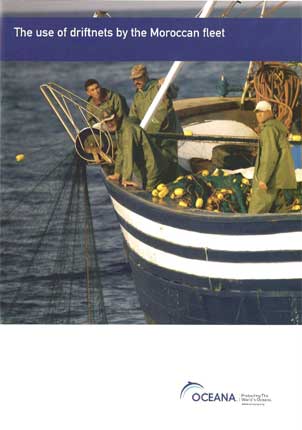Report | May, 2010
The use of driftnets by the Moroccan fleet
Driftnets have been condemned by the international community and banned by various countries and different international organisations. This fishery, however, still continues in various countries around the world, causing the accidental capture and death of a large number of cetaceans, sea turtles, elasmobranchs and birds.
One of the epicentres of this activity is located in the Mediterranean Sea. This sea was considered “legally” free of driftnets when, in the summer of 2005, and after being banned by various administrations, the General Fisheries Commission for the Mediterranean (GFCM) adopted a binding resolution where driftnets of any length were prohibited for capturing large migratory species. Compliance with these agreements, however, is far from effective. Countries such as Italy, France, Morocco, Turkey and Algeria are still using this fishing gear, making up a Mediterranean fleet of more than 500 vessels.
As part of its 2006 Campaign Oceana travelled for three months on boar tne Oceana Ranger research vessel in order to document and report the most significant driftnet fleets in the Mediterranean Sea. Within this context, the Moroccan fleet is the most notorious due to the number of vessels, as well as the particular international context in which the fleet operates. During the trip, this fleet’s usual fishing areas were identified and the fishing activities and catches of three Moroccan driftnetters on the high seas, with nets measuring up to 12 kilometres in length were filmed and documented.
Furthermore, the Moroccan ports of Tangiers, Nador and Alhucemas were inspected in order to evaluate the size of the fleet. The Moroccan driftnet fleet fishing in the Straits of Gibraltar and the Alboran Sea is estimated at 150 vessels, although this number may increase considerably according to the season.
Since countries of the European Union, especially Spain, are the destination points of almost 98% of the swordfish caught by the Moroccan driftnet fleet, and given that these countries have committed to giving financial aid for the conversion of this illegal fleet, Oceana proposes a series of recommendations to the relevant authorities in order to enforce compliance with the GFCM prohibition, so that the international support given for the elimination of these nets is definitive, effective and real.
El uso de redes de deriva por la flota marroquí
L’emploi de filets dérivants par la flotte marocaine




